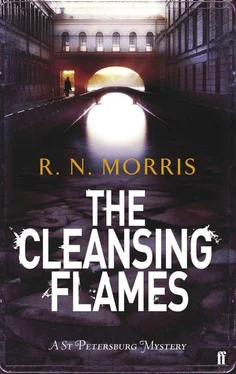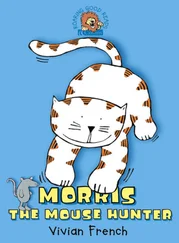R. Morris - The Cleansing Flames
Здесь есть возможность читать онлайн «R. Morris - The Cleansing Flames» весь текст электронной книги совершенно бесплатно (целиком полную версию без сокращений). В некоторых случаях можно слушать аудио, скачать через торрент в формате fb2 и присутствует краткое содержание. Год выпуска: 2011, ISBN: 2011, Издательство: Faber and Faber Fiction, Жанр: Исторический детектив, на английском языке. Описание произведения, (предисловие) а так же отзывы посетителей доступны на портале библиотеки ЛибКат.
- Название:The Cleansing Flames
- Автор:
- Издательство:Faber and Faber Fiction
- Жанр:
- Год:2011
- ISBN:0571259154
- Рейтинг книги:5 / 5. Голосов: 1
-
Избранное:Добавить в избранное
- Отзывы:
-
Ваша оценка:
- 100
- 1
- 2
- 3
- 4
- 5
The Cleansing Flames: краткое содержание, описание и аннотация
Предлагаем к чтению аннотацию, описание, краткое содержание или предисловие (зависит от того, что написал сам автор книги «The Cleansing Flames»). Если вы не нашли необходимую информацию о книге — напишите в комментариях, мы постараемся отыскать её.
The Cleansing Flames — читать онлайн бесплатно полную книгу (весь текст) целиком
Ниже представлен текст книги, разбитый по страницам. Система сохранения места последней прочитанной страницы, позволяет с удобством читать онлайн бесплатно книгу «The Cleansing Flames», без необходимости каждый раз заново искать на чём Вы остановились. Поставьте закладку, и сможете в любой момент перейти на страницу, на которой закончили чтение.
Интервал:
Закладка:
He looked up to see the Church of the Assumption of the Virgin Mary towering over him.
And then he understood that all that he had just experienced was the last trace of ether disintegrating in his blood. His ruthless clarity returned to him. He was about to die. There was no soul. Nothing would survive the imminent incineration of his body. He was, in effect, already dead.
The elation left him. His body went into spasm. He became a flimsy marionette whose strings were being jerked by an angry puppet master. He slipped out of the grip of his escorts, and even threw one clenched hand into Tatyana Ruslanovna’s face.
‘Hold onto him!’ shouted Totsky.
It was surprise that had shaken him out of their hands, and a momentary rush of strength. His fingers pulled at the kosovorotka , lifting the bottom hem up over his head. With his free hand he felt what seemed to be rows of glass capsules sewn into the unfamiliar undergarment into which he had been bound.
‘No!’ Tatyana Ruslanovna’s imperious tone stayed his hand, for the moment at least. He released the hem of the shirt and it fell back into place.
‘If you take that off, you know what Botkin will do,’ continued Tatyana Ruslanovna. ‘Will you condemn that baby to death?’
As Virginsky struggled to take in what she had said, Totsky’s hand came up towards his face. He expected Totsky to strike him, but his hand fell short of a blow. Then Virginsky noticed the vitreous flash of the bottle the other man was clutching, and he felt once again the wolf-like fumes devour the membranes of his nostrils. He staggered back, arms flailing the suddenly viscous air.
‘It’s alright! He’s had too much to drink!’ Tatyana Ruslanovna shouted excitedly into the godless void in front of the church. ‘Grief. He was very close to the deceased, you see.’
Their hands were on him again. ‘Deceased?’ cried Virginsky. ‘Who is deceased?’
‘Someone you killed, that’s all,’ answered Tatyana Ruslanovna.
‘Porfiry Petrovich, do you mean? But he isn’t really dead. You know that. He wouldn’t go through with this!’
Tatyana Ruslanovna tilted her head back, in an expression of high disdain. Apart from a slight spasm at the corner of the mouth, it was the only answer she volunteered.
*
He had never seen so many candles. The tiny glimmering flames seemed to form a sea of light out of which the congregation was rising. And then he realised that each member of the congregation was holding a candle in front of them. He wanted more than anything to have a candle of his own but the service had already begun. And Tatyana Ruslanovna and Totsky hurried him into the church as if there was no time for that.
In his confusion, he connected the glow of the candles with the sound of chanting, as if the burning of wicks suspended in wax produced an auditory effect, as well as a visual one. Then he realised that it was the people holding the candles who were producing the sounds, which truly were as beautiful and soothing to his ears as the candlelight was to his eyes. A slowly soaring melody ranged over the upper registers of his emotions like a high majestic bird riding eddies; beneath it, a deep bass drone persisted, its beauty sombre, powerful and enduring. There could be no arguing with that bass. It vibrated viscerally, physically, taking hold not just of his internal organs but of the frame that contained them.
The solemnity of the sound made a deep impression on him. And yet something about it struck him as inappropriate, almost ludicrous.
He glanced to either side of him and noticed that Tatyana Ruslanovna was no longer holding onto him. In fact, she was backing away towards the door. Totsky was still there by his side, gripping his upper arm tightly.
‘Where is she going?’ cried Virginsky to his one remaining captor. His shout went off like a firecracker. It drew disapproving frowns from those around him.
‘Pavel Pavlovich? Is that you?’ The voice hissed from just in front of him.
Virginsky turned to see the familiar face of Nikodim Fomich, which seemed to float out of the sea of candle flames. The apparition acted on him like an emotional lodestone. His eager, deprived gaze latched onto it. Feelings that he was not aware of harbouring surged out from the core of his being to its surface. He searched for reassurance and succour in insignificant details. And yet there was something that jarred in the Chief of Police’s face, an inexplicable hostility squeezing his mouth into an uncharacteristically sour pucker.
Virginsky felt the hand around his arm tighten. Totsky was looking nervously over his shoulder at Tatyana Ruslanovna, who was lurking by the door, ready to make a break for it when the time came. Virginsky could not be sure whether it was Tatyana Ruslanovna’s imminent flight, rather than Nikodim Fomich’s intervention, that had prompted Totsky to increase his grip.
Certainly Nikodim Fomich’s appearance had the effect of sobering Virginsky, of concentrating his mind. There was now a danger, he realised, that Totsky would panic, that he would be pushed into acting precipitously. He had to think — and act — quickly. The vital thing was to remain on his feet for as long as possible, and to keep out of the press of the congregation. He felt himself to be remarkably in control of his actions. He shook his head warningly to Nikodim Fomich.
At that moment the priest began to lead the congregation in the Kontakion to the Departed: ‘ With the saints give rest, O Christ, to the soul of Thy servant. . ’
The words of the Kontakion continued to reverberate in the vast sounding box of the cathedral, voices overlapping with voices to create a rising bed of sound on which the meaning was borne up, as if to Heaven: ‘ . . where sickness and sorrow are no more, neither sighing, but life everlasting. ’
Now Nikodim Fomich shook his head, in a grave, slow, momentous sweep. The gesture was imbued with unexpected pity, and therefore left no room for hope.
Virginsky yanked himself free of Totsky’s hold. And if he had thought about it, he might have been surprised by how easily his freedom was achieved. But he was beyond that now. He did not even care that he was jostled as he pushed his way through the crowd of standing mourners to the front of the church.
Around the coffin were placed four great manoualias , each densely packed with fine candles giving a thick cluster of flames. The candle-stands were arranged one at the head, one at the foot of the coffin, and one on either side, forming the branches of a flaming cross. Virginsky could not yet bring himself to confront what lay within. His eye went instead to the memorial table nearby, on which were placed the dish of koliva that the mourners would eat after the service. He understood the symbolism well enough. Although he was an atheist, he was still a Russian. The wheat of the koliva represented rebirth through death. The grain had to fall to the ground before it could give forth fruit, just as the faithful had to die before the eternal life of the soul could come into being.
But Virginsky saw only a glutinous mound of cold boiled wheat. As food it was unappetising; as a religious symbol it repelled him. The burning tapers — small fragments of the greater flame — that projected from it were like the cheap tricks of a bad stage conjuror. Had Porfiry really invested the core of his being in such counterfeit props? Virginsky had never given much thought to his superior’s faith. It was something he had taken for granted; out of respect, he had held himself back from challenging it. At the same time, he had not taken it entirely seriously either. He had thought of it as another of Porfiry’s eccentricities, almost as an affectation. But now, for the first time, it struck him that his faith was the one thing of which Porfiry would never have made light. It was inconceivable that he would have deceived the church authorities into conducting a bogus funeral, and equally inconceivable that they would have gone along with such a charade.
Читать дальшеИнтервал:
Закладка:
Похожие книги на «The Cleansing Flames»
Представляем Вашему вниманию похожие книги на «The Cleansing Flames» списком для выбора. Мы отобрали схожую по названию и смыслу литературу в надежде предоставить читателям больше вариантов отыскать новые, интересные, ещё непрочитанные произведения.
Обсуждение, отзывы о книге «The Cleansing Flames» и просто собственные мнения читателей. Оставьте ваши комментарии, напишите, что Вы думаете о произведении, его смысле или главных героях. Укажите что конкретно понравилось, а что нет, и почему Вы так считаете.












